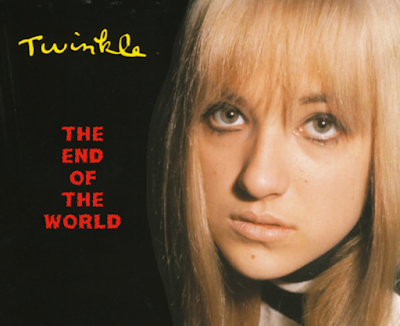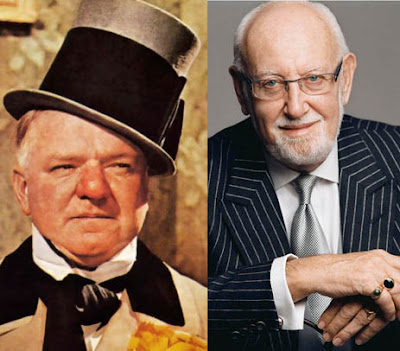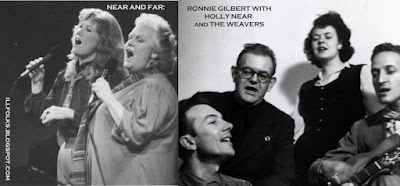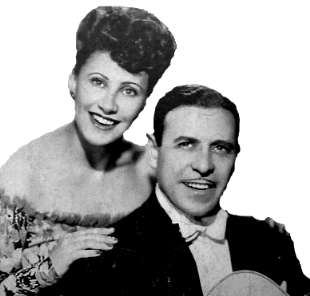People who grew up in the 80's, and NEVER grew out of their love for shitty 80's mutant rock, keep saying "Please come back" to people who should get lost.
I understand what nostalgia is, but, right said Fred, "Fuck off!" I don't want to see sea gull hairstyles again. I don't excuse herpes just because "girls just wanna have fun." Synthesizers are almost as annoying as vocoders. Nobody still wants to eat a fucking Vegemite sandwich because some oddball Aussie sang about one. Hey Mickey, Hey Mickey, Hey Mickey…let's NOT dance to David Bowie's sea sick disco music OR the inane "Men Without Brains" camp-upchuck-punk "Safety Dance." And if you tell me "Don't Worry Be Happy" I'll say go eat a cannibal (it's incredible).
As for Boy George and his 1982 simpering and garish "Do You Want To Hurt Me?" WHAM! This is a new age, fellas. Don't keep hunting men's rooms for George Michael, or calling out the always outre and out Boy George. Boys acting like girls is out. Sex change operations are in. Just ask Bruce Jenner.
Why people still want this idiot Boy George to come back and "entertain" is just a sign of how brain-damaged they got from listening to 80's schlock. This was, after all, the VIDEO generation, where Falco, Duran Duran, Michael Jackson and all types of idiots used flashy visuals to disguise how rancid the music was. You were supposed to watch it, dance to it, fuck to it...but not actually LISTEN TO IT. The music was so crappy, it had to rely on fashion, and dopey posturing. Hungry like a wolf? Go throw up like a rat, you tasteless bunch of tweens.
Yet, ever since 1982, Boy George's anal followers have looked backwards in lust and desire, squealing "Please sir/madam, can we have some...MORE moronics?"
So the world was treated to a puffy, porcine Boy George or George posturing about in some new twist on androgyny, while singing forgettable junk that couldn't make for a comeback, and couldn't even make his most devoted fans come. Even so, he was never out of the headlines. He sure could give headlines. Even down and out, he made the papers. After an arrest and the punishment of community service: "Here's Boy George sweeping garbage from a Manhattan street" rather than trolling for garbage in a Greenwich Village alley.
So indelible is Boy George and that old wimpy anthem for uh, tolerance of pretentiousness, that there was recently yet another attempt to get him and his band back together. There was even a film crew to document this fetid germ of an idea. The result? Well, considering how snarky the gay community actually is, you wonder how many of his fans have been laughing AT and not WITH the joke he's become. It's possible only a few mewling middle-aged women took it seriously. Most viewers had to be rolling their eyes while watching the BBC4 cockumentary of caca, "Karma to Calamity."
This doesn't include ME, by the way. I've added this entry after having read about the recently aired TV show from a trustworthy blogger today. It had me recalling the "Georgie Girl" parody, so I thought I'd digitize it and add some fuel to the bonfire of The Boy's vanity.
The documentary was hoping to show the latest, and most triumphant comeback attempt of the yogurty Culture Club members and their vain diva leader, Goy Bore. Er, Boy George. Alas, thanks to George being even a worse queen than Ray Davies, the documentary hobbled to an end with NO big concert date, NO new album, and NOBODY being that upset over the squalid spectacle of a rock band and its leader not get along.
This blog returns to the glam 80's ONLY to prove that even back then, this simpering George Jackass was well-loathed. Shot down even worse than George Jackson, the comical assassins at the Rhino novelty label, hired "Georgie Girl" to sing fantasies of destruction. Her answer song, complete with death scenarios: "YES, I REALLY WANT TO HURT YOU." Just what led Rhino to figure a British androgyne could ever date a Jewish American Princess bitch, I have no idea.
Nasty "Georgie Girl" is seething because "that fageleh stuff was not an act!" More shrewish than Jewish, she sounds like Patti Smith after eating past-expiration date herring. Or maybe a more Jewy Lesley Gore after eating past-expiration date cunt. No, no, the problem with "Georgie Girl" is that her boyfriend has turned out to BE a cunt. Chorus:
"Yes I really wanna hurt you, yes I really wanna make you cry. Shove your dreadlocks on the burner, then I'll laugh as I watch you fry!"
An awful flash-in-the-bedpan singer gets what he deserves, an awful parody. At least "Georgie Girl" had the good taste to NEVER record AGAIN. No such promise has come from Oy George.
Georgie Girl Yes I Really Want to Hurt You




















